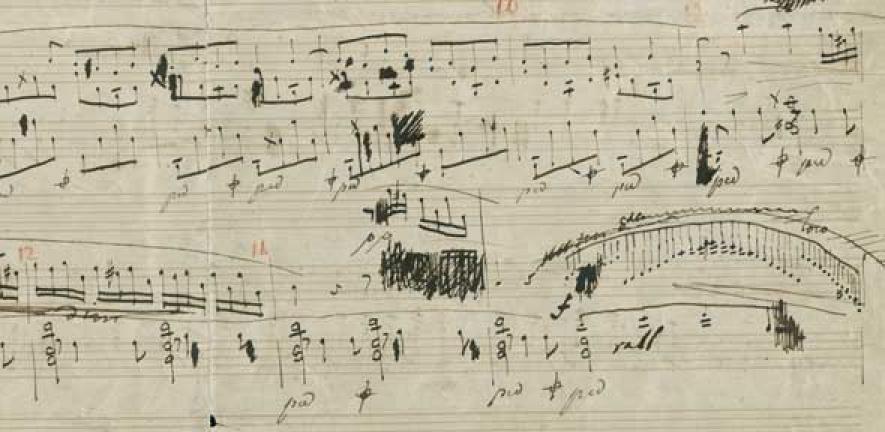My approach to studying piano may not be the most efficient, but it’s what works for me. I love the Romantic period. I like huge pieces, and difficult composers. Rachmaninoff, Scriabin, Liszt, and of course, Chopin. Falling in love with the music is the easy part. Learning how to play it competently is another matter entirely.
Initially, I concentrate on learning the mechanics of the piece. I study it slowly, measure by measure, section by section, paying careful attention to phasing and fingering. Then, I identify great performances of the piece. I listen or watch those until I understand what a universally-accepted ‘good’ interpretation of the piece is supposed to sound like. If it’s an Etude, I do additional research to understand the specific emphasized techniques.
I practice the piece until it grows stagnant, and then I put it down and move on to another.
I approach early drafts of my writing much the same way. I map out where the plot needs to go over the course of the next set of chapters. I decide which point of view I am going to use for each chapter, and I look at those characters’ arcs to decide how the character needs to evolve. Then, I write it down.
I focus on building a strong skeleton for my chapters. I anchor the point of view frequently throughout to keep myself honest. I don’t worry about being too wordy. Readability isn’t my goal, because I know I’m going to revisit the writing again. My goal, at this stage, is to get the story from point A to point B, and to advance each point of view character along his or her larger arc.
I finish those chapters and do some editing. Once the process grows stagnant, I move on to my next set of chapters.
A magical thing happens when I revisit a difficult piece of music. Many of the technical things I needed to concentrate on before become automatic. Even though I wasn’t actively practicing that piece, my brain was still working on it in the background… codifying fingerings, hard wiring hand positions, and so on and so forth.
Without having to spend bandwidth on the basic movements of the piece, I’m free to focus on other aspects. I can already play the chords, but the melody isn’t clear, so I can focus on voicing… bringing out the notes that are important, and letting the storms of supporting notes fall back into the background. In short, the piece becomes cleaner, clearer and more musical.
A similarly magical thing happens when I revisit a section of my writing. Having taken the story farther, I’m able to edit with a greater understanding of my plot and character arcs. Things that I thought were important to highlight, during the first draft, might have changed. Character actions and reactions may need adjustment to build to a more meaningful moment later in the story that I simply couldn’t see during my initial draft.
The nuts-and-bolts structure of my writing becomes much clearer when I revisit it as well. So many clunky phrases get stripped away. If the chapter was written from Liam’s point of view, the reader didn’t need me to say ‘Liam watched as such and such happened’. I put that phrase in there because I needed it to keep me rooted in the point of view. It was necessary scaffolding for the first draft, but nothing more.
It’s much like voicing a chord. Every note is important, but some are more important than the rest. Clearing away the clutter within a dense chord highlights the melody, making the piece more listenable. By the same token, clearing away all the scaffolding and unnecessary clutter from a paragraph makes it more readable and the story more impactful.
